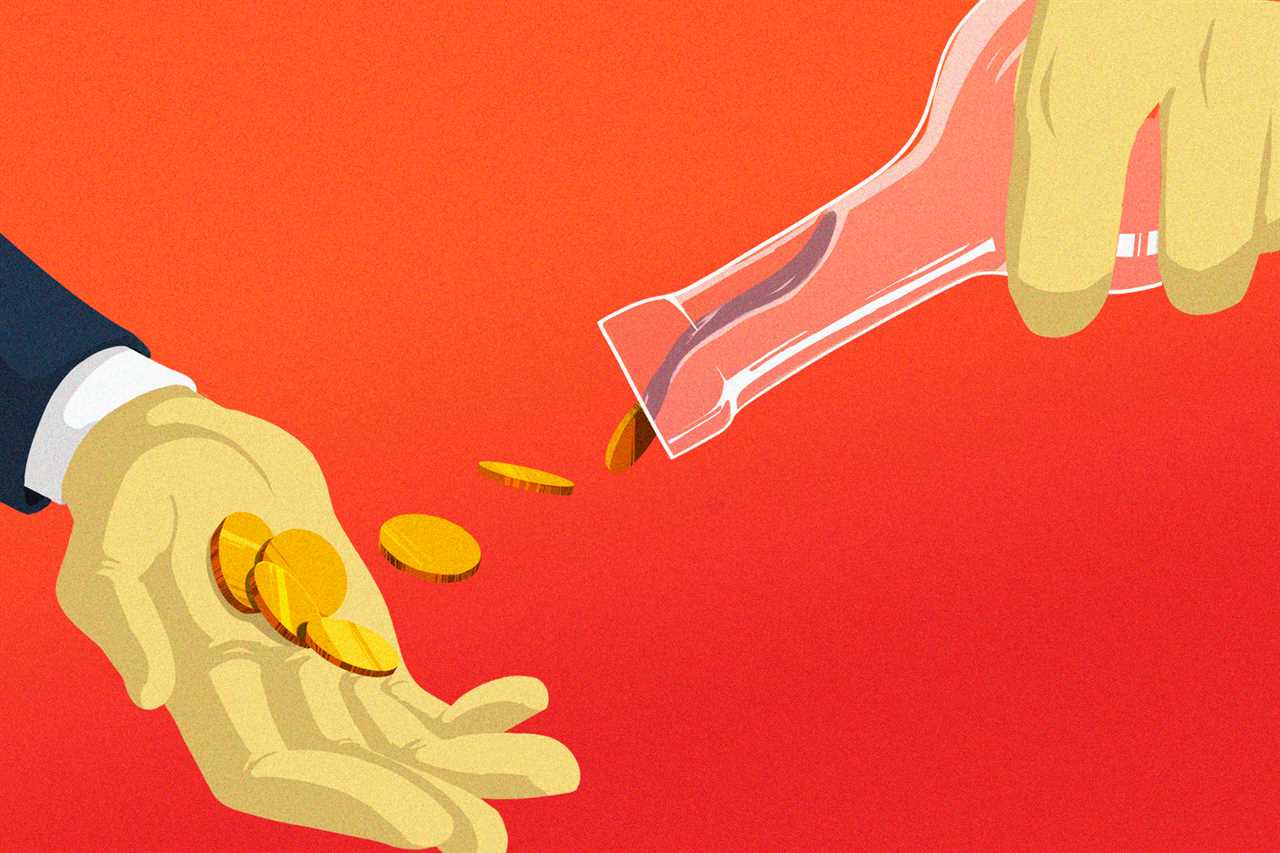
Of the dozens of vodka factories strung across Russia’s 11 time zones, the crown jewel of the Russian liquor industry is the Kristall distillery","link":{"target":"NEW","attributes":[],"url":"https://kristall.ru/en/history/","_id":"00000187-eb5b-db3c-a1c7-efdb77700000","_type":"33ac701a-72c1-316a-a3a5-13918cf384df"},"_id":"00000187-eb5b-db3c-a1c7-efdb77700001","_type":"02ec1f82-5e56-3b8c-af6e-6fc7c8772266"}">Kristall distillery in downtown Moscow, birthplace of the world-famous Stolichnaya brand. Founded in 1901 as “Moscow State Wine Warehouse No. 1,” the iconic red-brick factory just two miles due east of the Kremlin fueled Tsar Nicholas II’s vodka monopoly, providing the largest revenue source for the Russian empire. The splendor of the house of Romanov — sprawling, opulent palaces full of amber, gold and jewels — was largely built atop the bloated livers and drunken poverty of the Russian peasantry.
Despite a strict prohibition during the tumult of World War I and the 1917 Bolshevik Revolution, Kristall continued to churn out industrial alcohol for the war effort and high-end liquor to keep Moscow’s foreign embassies well-lubricated. During World War II, the invading Germans repeatedly bombed the Kristall plant. Unbowed — even as the Nazis drove on Moscow itself — the factory still pumped out both vodka and Molotov cocktails for the front.
Decades later, Kristall would again be on the frontlines — but this time in a battle for control over the lucrative vodka industry itself, one launched not by foreign aggressors but by Russian President Vladimir Putin.
On Dec. 31, 1999, while the rest of the world was fixated on Y2K, ailing Russian President Boris Yeltsin tearfully concluded his annual New Year’s address by announcing he was stepping down as president, appointing Putin, his little-known prime minister, in his stead. In the months that followed, Putin stood for election in his own right, winning the presidency handily.
One day before his formal inauguration, on May 6, 2000, Putin signed a directive that would begin the reconsolidation of Russia’s top revenue-generating industries. But Putin’s first target wasn’t oil or natural gas, or diamonds or gold or nickel. It was vodka.
On that date, Putin created a new company called Rosspirtprom — an acronym for Russian Spirits Industry — to seize control of the means of vodka production. It was a move that not only helped Putin amass enormous wealth over the coming two decades, but was a critical first step in cementing his grip on the Russian economy and the Russian people, who would help line his pockets while his vodka helped ruin their health.
It would begin at Kristall.
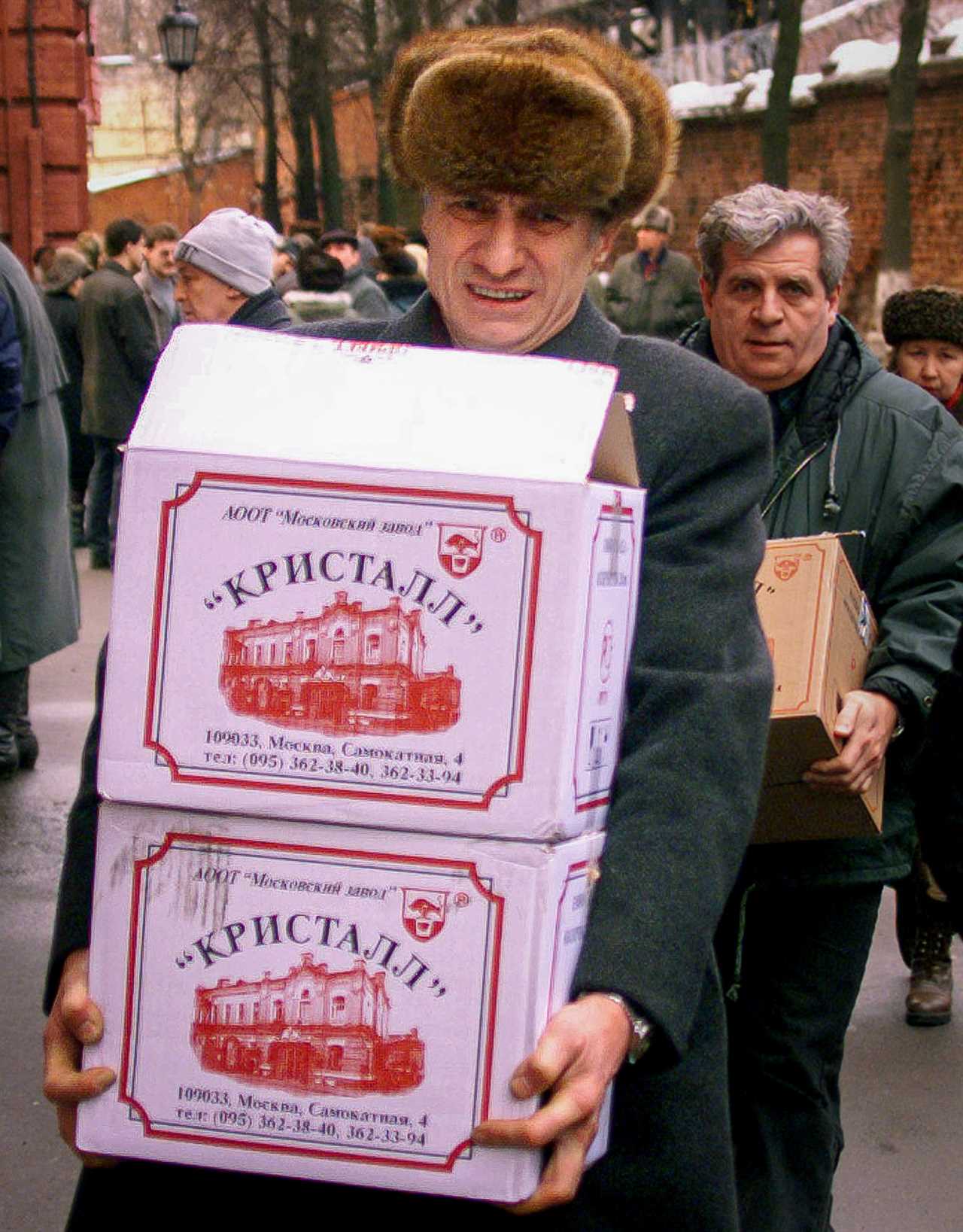
The distillery was 51 percent owned by the Moscow city government run by longtime mayor Yuri Luzhkov, a powerful political rival. Kristall was a moneymaker, officially contributing $89 million in taxes on $142 million in profits. For Putin, it was an irresistible target. Seizing it would not only be immensely profitable, but would bring a potential presidential contender to heel.
The takeover began soon after, with questions about how some of Kristall’s shares wound up offshore. Vladimir Svirsky, the factory’s city-backed acting director, acknowledged that about 19 percent of shares were held by a firm in Cyprus, but he insisted that the owner was "friendly" and the stocks "are working for the collective." Yet by Svirsky’s own accounting millions of rubles were missing from Kristall's ledgers. Increasingly aggressive Kremlin investigators opened multiple audits, demanding ever more access. Alarmed by the federal government’s hostile demands, the city-backed Kristall management hired an army of heavily armed guards.
The dispute came to a head on Aug. 4, 2000, when truckloads of AK-47 wielding troops of the Russian Federal Tax Police Service swooped in to “re-establish the state’s control,” and install a new Kremlin-approved director, Aleksandr Romanov. While Romanov and his green-fatigued troops occupied the administrative offices, Svirsky’s armed men in blue still held the rest of the sprawling factory complex. Both sides refused to leave, as the legal dispute was being decided in the courts. The guns-drawn standoff at Kristall lasted weeks, even while the plant continued to churn out millions of gallons of vodka.
“I don’t know whose orders we’re obeying — some director or another,” said one assembly-line worker in an interview under the watchful eyes of both the green and blue troops. “We don’t have time, we have to make a lot of vodka — our job is to work, to work and that’s all.”
After a month, the armed standoff ended when a Moscow court suspiciously reversed an earlier ruling and upheld the Rosspirtprom takeover. With the aid of a local police battalion, Romanov and his troops swept through — wresting control of the lucrative vodka flows from Luzhkov’s city government, and giving it to the Putin-controlled Rosspirtprom. With fewer fireworks, vodka facilities across Russia were taken over in the weeks that followed, stripping Putin’s would-be rivals — often powerful governors and mayors like Luzhkov — of control over their regional budgets, more than half the tax revenue for which was generated by vodka sales.
At the time, news outlets covered the Kristall standoff with amusement, reveling in the collision of two of Russia’s crudest stereotypes: Vodka and crony capitalism. Yet in hindsight, this battle for control over booze revenues marked the beginning of much larger moves by the Russian president. Over his now 23 years in power, Putin has entrenched both political authoritarianism and cronyism in post-Soviet Russia. As jailed opposition muckraker Alexei Navalny and intrepid Russian investigative journalists have showcased, leeching off state resources for personal enrichment isn’t limited to the notorious oligarch class; it is led by Vladimir Putin himself.
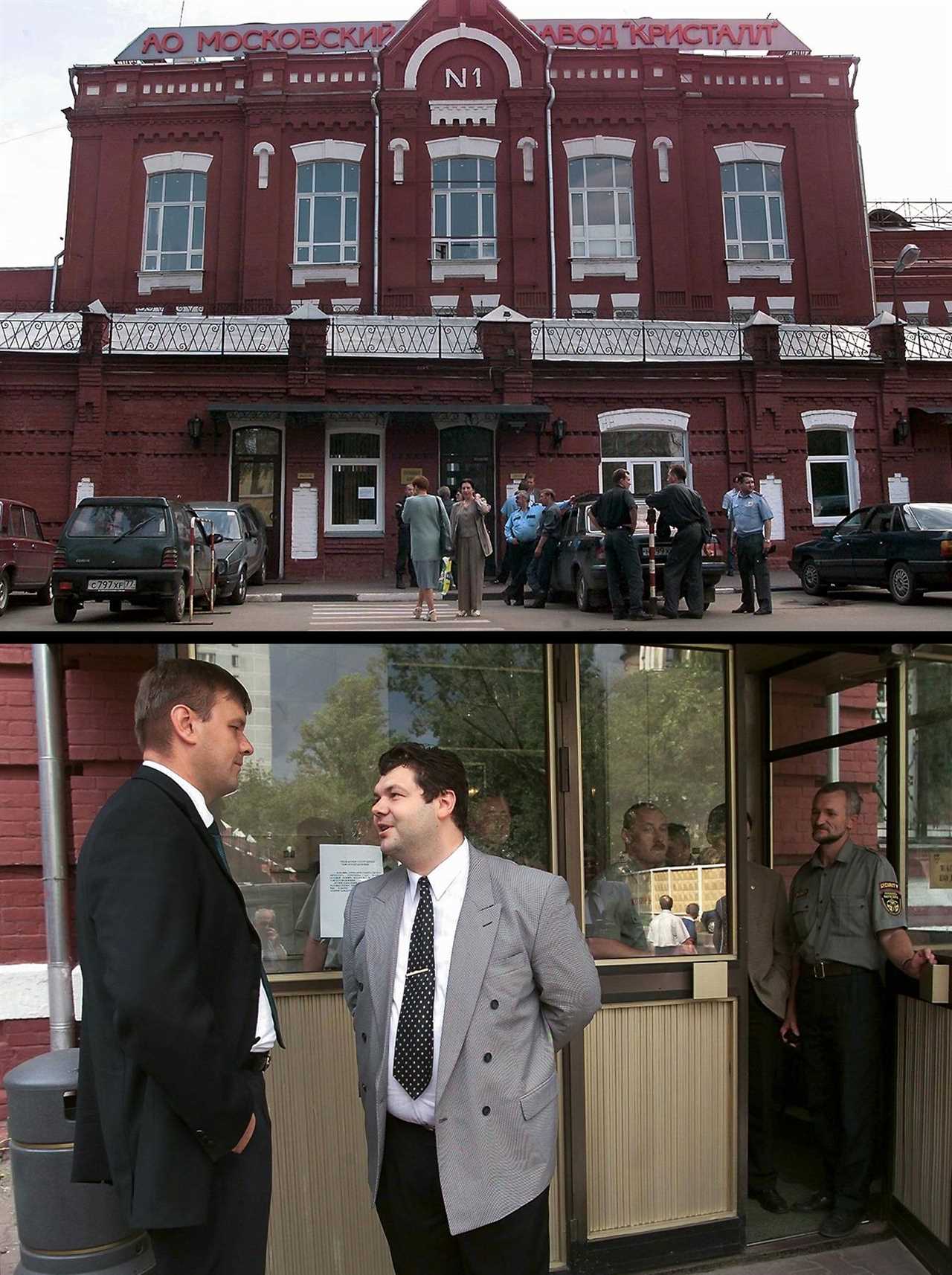
During Putin’s first two terms as president, from 2000 to 2008, the hallmarks of what came to be known as “Putinomics” were political stability, steady economic growth and bringing both political and economic power back “under center.” He created so-called “national champion companies,” using the coercive muscle of the state to take over and consolidate entire markets under corporations in which the government owned a controlling stake. Industrial giants like Gazprom and Rosneft would serve as the natural gas and oil arms of the Kremlin, prioritizing the interests of the Russian state.
"Vodka may not be gas or oil,” explained an article in the Russian journal Ekspert, “but it too is a strategically important product. So important that to control its production it was necessary to create an alcohol equivalent of Gazprom.”
The relationship between autocracy and vodka in Russia, of course, goes back much further than Putin. Every innovation of feudalism — from legal serfdom to oppressive taxation and forced conscription — bound Russian society to the state, subordinating society for the profit of the autocrat. Once crystallized into traditions, such dynamics of domination and subordination persist through time as culture.
And there’s nothing more synonymous with Russian culture than vodka.
The historical reasons for this are generally dismissed as trivial or politely avoided altogether. I’ve explored this topic in two books, and I’ve found that you can’t understand Russia without understanding the connection between booze and political power. The details aren’t always easy to pin down; when it comes to the opaque and corrupt contemporary world of Russian business, questions of who truly owns what offshore shell company is often the subject of speculation and rumor. But recent revelations by brave Russian investigative journalists — working at tremendous personal peril to expose high-level corruption in an increasingly repressive autocracy — have provided important pieces of the puzzle, allowing us to finally see a fuller picture of Russia’s vodka autocracy.
Together, this new information combined with historical patterns reveal how the Kremlin has wielded alcohol as a weapon — maintaining political dominance over its own dependent Russian civil society, both throughout history and into the present. In particular, it is an account of how Russian President Vladimir Putin has amassed a shadow empire of vodka to enrich himself at the direct expense of his citizens’ drunken misery.

‘Vodka … will lead us back to capitalism’
The Russian people’s well-known affinity for vodka is more a legacy of its rulers’ autocratic statecraft than some innate cultural or genetic trait.
Many global societies have traditions of brewing low-alcohol fermented drinks — beers, wines and hard ciders — which were often safer to drink than bacteria-ridden stream water. Russia was no exception: Peasants there drank many of the same brews as their European counterparts: Beers, ales, mead from fermented honey, and kvass from fermented bread.
But the advent of industrial distillation — and the high-potency vodkas, brandies, whiskies and gins borne of the Industrial Revolution — was a game changer. In the words of historian David Christian, “distilled drinks were to fermented drinks what guns were to bows and arrows: instruments of a potency unimaginable in most traditional societies.”
The liquor traffic has long been a well-known tool of European domination and conquest. With brandy and guns, the British colonized India and South Africa. With gin and guns, the Belgians decimated the Congo. In North America, it was whiskey — “the white man’s wicked water” — and guns, that settlers employed to ethnically cleanse the eastern half of North America of Native Americans.
Rather than a far-flung, transoceanic empire like the British, Russia’s was a contiguous, land-based empire. Russian emperors conquered and colonized neighboring non-Russian populations and subordinated them within an autocratic system alongside their ethnic Russian counterparts. And they used some of the same tools.
In 1552, while laying siege to the Khanate of Kazan, Ivan the Terrible saw how the Tatars monopolized their tavern business. Seizing both the town and the idea, Ivan proclaimed a crown monopoly on the alcohol trade, funneling all profits to the tsar’s coffers. Soldering the link between booze and feudalism, the same Law Code of 1649 that legally bound the Russian serf to the land also forbade the private trade in vodka under penalty of torture.
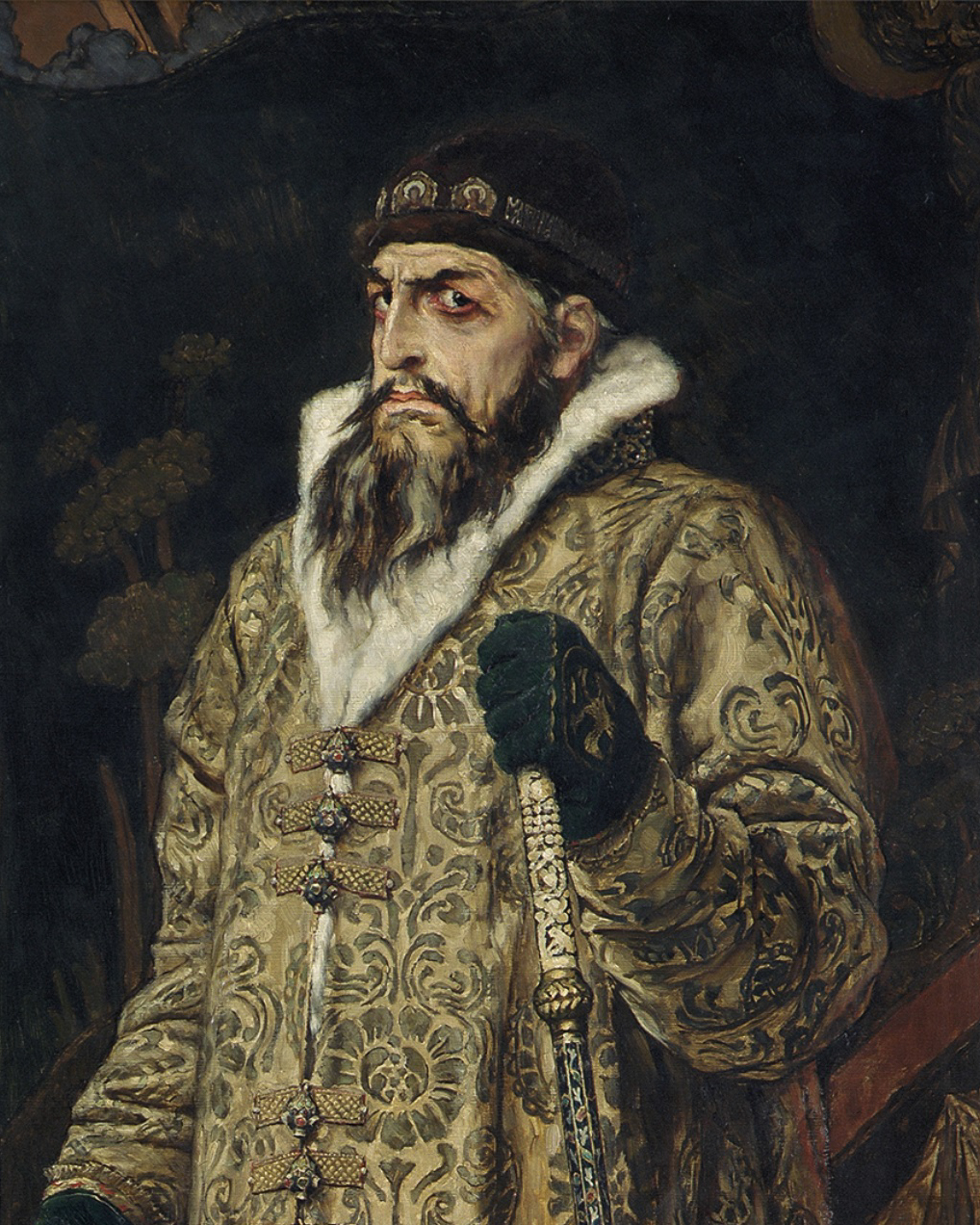
Even Russian historians admit vodka is the world’s most primitive distilled beverage, and the cheapest to mass produce. Over time, vodka elbowed-out the traditional fermented drinks —not because it tasted better, but because it turned a bigger profit. Rubles from the sale of vodka swelled the Muscovite treasury.
By the mid-19th century, the imperial vodka monopoly was the largest contributor to the Russian budget, with one-third of all revenues — enough to both fund lifestyles of opulence and imperial splendor and field the world’s largest standing army — derived from the drunken poverty of the Russian peasantry. Even beyond the officially sanctioned vodka trade, dealing vodka became a privilege officially reserved for the gentry and Romanov family; the distilleries on their private estates generating ever more royal wealth.
By the 20th century, it didn’t take a rabid Marxist to note the obvious: The liquor traffic was how the rich got richer while the poor got poorer. Indeed, many European socialists and revolutionaries abstained from drinking on just such ideological grounds — including Vladimir Lenin and Leon Trotsky. So when Lenin’s Bolsheviks seized power in Petrograd in 1917, they extended the World War I vodka prohibition inherited from their tsarist predecessors beyond the end of the war. In 1922, Lenin argued against putting “vodka and other intoxicants on the market, because, profitable though they are, they will lead us back to capitalism and not forward to communism.”
Within months, Lenin was dead, and his successor Joseph Stalin gradually restarted the traditional Russian vodka monopoly, but in the service of the gleaming, new Soviet state. Stalin was even more ruthless than the tsars in uprooting any grassroots temperance movements that dared promote public health and wellbeing, diminishing the flow of rubles for the state. Indeed, the economic might of the Soviet colossus was built upon the drunkenness of its subjects.
When, in the 1980s, Mikhail Gorbachev tried to reform the moribund Soviet economy, he began by trying to wean Russians from their vodka. His resulting anti-alcohol campaign ended in disaster, partly because he couldn’t wean the Soviet government from its own addiction to alcohol revenues. By papering-over the budgetary hole by printing ever more rubles, the resulting hyperinflationary spiral helped doom the Soviet Union itself.
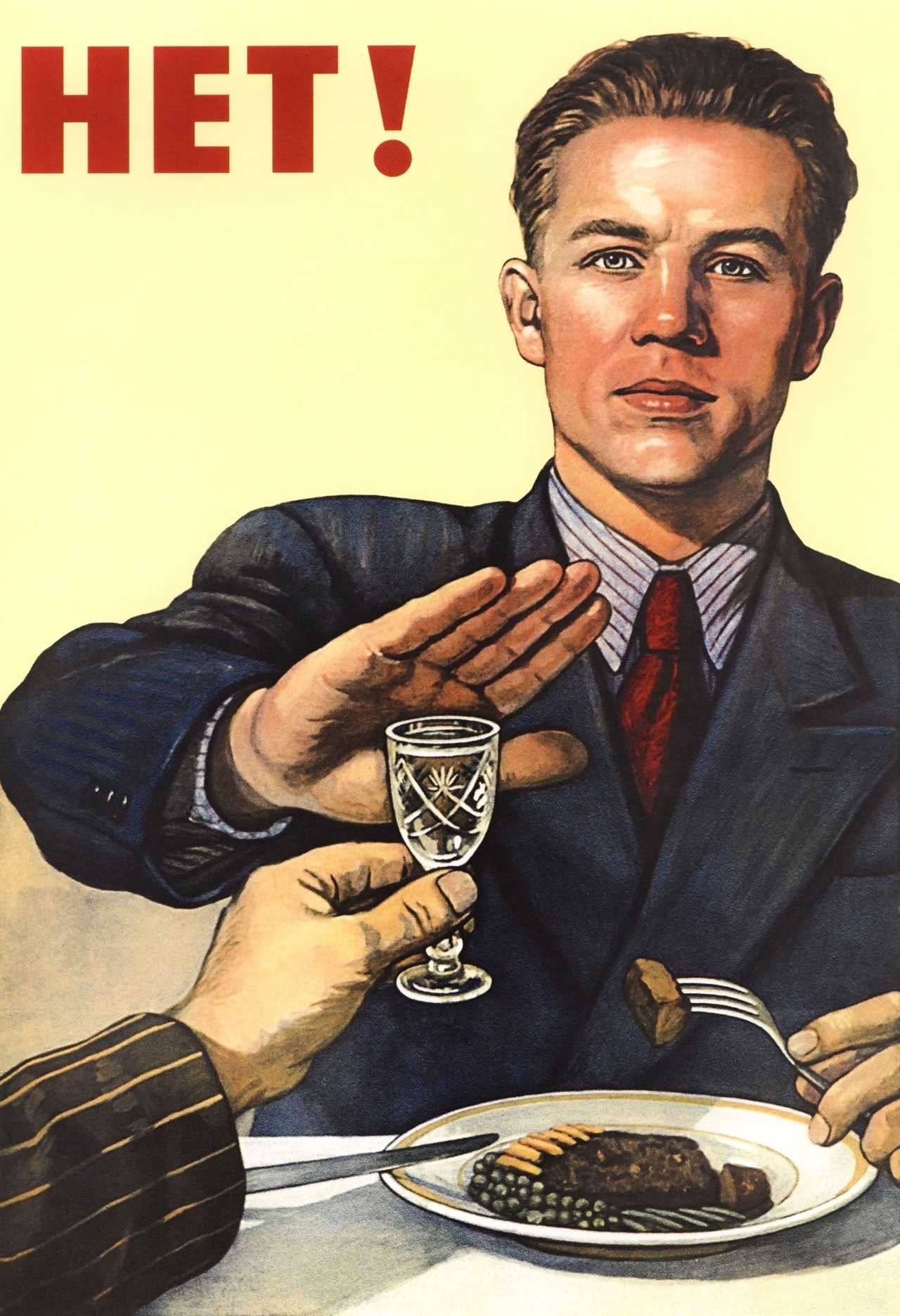
By the 1990s, the communist administrative-command economy was dead, and with it went the state vodka monopoly. The new “Wild East” of Russian capitalism extended to the largely unregulated liquor market. Amidst the decade-long economic depression, Russian alcohol consumption skyrocketed, along with Russian mortality. Russians drank on average 18 liters of pure alcohol per year — 10 liters more than what the World Health Organization considers dangerous. The average Russian drinker was quaffing 180 bottles of vodka per year, or a half-bottle every single day. Consequently, average male life expectancy in Russia dipped to only 58 years. The inebriate national tenor was led by oft-inebriated President Boris Yeltsin, who seemed to stumble from one drunken public embarrassment to another.
This was the context for the rise of a new Russian vodka oligarchy. Rather than being an aberration, historically selling vodka to the downtrodden Russian people was a time-tested source of fantastic wealth throughout Russian history — whether that wealth was state revenue, private profit or both simultaneously.
Indeed, this is also where corruption has blossomed throughout Russian history — in the grey zone between public power and private profit.

‘The brainchild of Vladimir Putin’
In the beginning, Putin seemed an unlikely candidate to build a vast vodka empire. He has never been particularly associated with drinking or alcohol. Both his biography and public image are largely distant from booze. Growing up, this undersized Leningrad hoodlum took to judo, which instilled discipline and kept him off the streets. As a young KGB officer stationed in East Germany, he would occasionally knock back a beer, but nothing more. “He is indifferent to alcohol, really,” his then-wife, Lyudmila Putina once explained.
The dismal 1990s found Putin back in St. Petersburg, as an able — and most importantly, loyal — aide to liberal mayor Anatoly Sobchak. Putin headed the city’s External Relations Committee, overseeing lucrative foreign-investment deals and reportedly skimming from them handsomely. His can-do reputation earned Putin a promotion to Moscow, serving first as the deputy chief of Yeltsin’s presidential staff, then head of the FSB security service before being appointed prime minister in August 1999. Once in Yeltsin’s Kremlin, rather than succumb to the usual drunkenness of official banquets, Putin would reportedly dump his drinks, discretely, into decorative flowerpots.
After he became president, whether practicing judo, playing hockey or riding shirtless on horseback, Putin carefully crafted a public image of virility, physical fitness and stable leadership; purposefully drawing a stark contrast with the sickly, drunken and unsteady Yeltsin presidency. Publicly, Putin championed active and healthy lifestyles — much to the delight of a few, nascent public health and anti-liquor organizations, which invoked Putin’s machismo in their “live sober” campaigns. Decrying the “alcoholization” of Russian society was a consistent theme of his annual state of the union addresses.
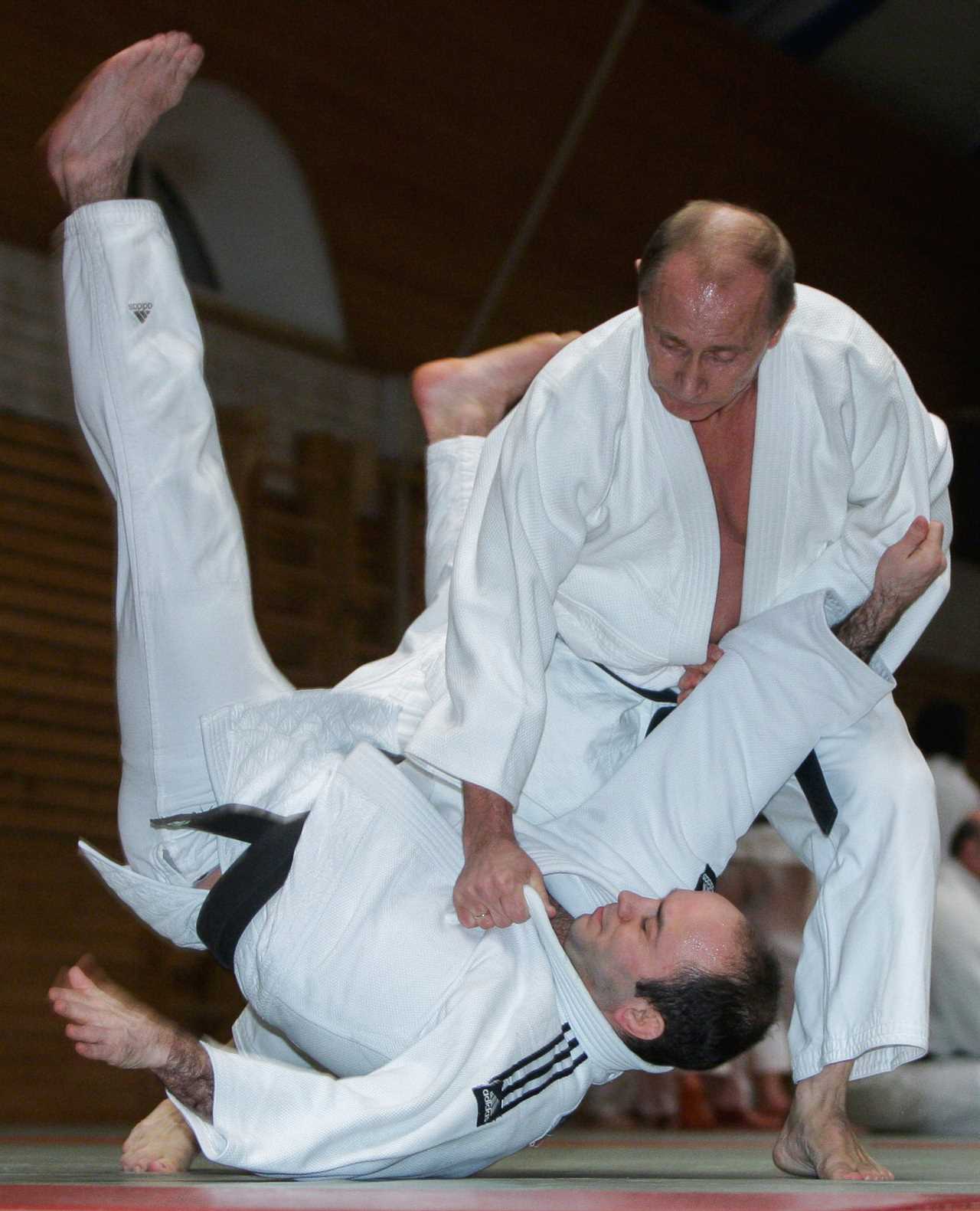
So, having Putin enrich himself personally by promoting the very vice he privately avoided and publicly decried would be hypocrisy most brazen. Yet that seems to have been his plan from the very beginning, with the creation of his Rosspirtprom national-champion company before his inauguration, and the seizing of the Kristall factory in the summer of 2000.
Putin’s onetime senior policy advisor, Andrei Illarionov, later recalled being blindsided by Putin’s decision to seize Kristall and with it the “primary and most important stream of federal finances.” Hurriedly, Illarionov dialed up his high-ranking government colleagues — Russian Finance Minister Alexei Kudrin and Minister of Economic Trade and Development German Gref — only to find that this was news to them, too.
“I soon realized that for Putin, there are two distinctly separate groups of people,” Illarionov explained, “let’s call them the ‘economics group’ versus the ‘business people.’ With the one group — Kudrin, Gref, and me — Putin discussed issues of the general economy; while with the help of the other, he seized control over property and financial flows.”
Who were these “business people” with whom Putin suddenly entrusted Russia’s most dependable and lucrative revenue stream?
Like most oligarchs, Arkady Rotenberg is reclusive, yet when given the opportunity for an interview, the business newspaper Kommersant’ ","link":{"target":"NEW","attributes":[],"url":"https://www.kommersant.ru/doc/1361793","_id":"00000187-eb5b-db3c-a1c7-efdb7773000a","_type":"33ac701a-72c1-316a-a3a5-13918cf384df"},"_id":"00000187-eb5b-db3c-a1c7-efdb7773000b","_type":"02ec1f82-5e56-3b8c-af6e-6fc7c8772266"}">Kommersant’ boldly asked whether his proximity to Putin was the source of his wealth. “Knowing high-level government officials has never been an impediment to business in our country, but it is hardly a guarantee of success,” Rotenberg replied. Instead, he credited hard work and judo philosophy for his good fortune — first by chairing Rosspirtprom, and then parlaying that money into banking and pipeline-building for Gazprom, and securing over $7 billion in construction contracts for the Sochi Olympics. Today, Forbes estimates Rotenberg’s worth at $3.5 billion.
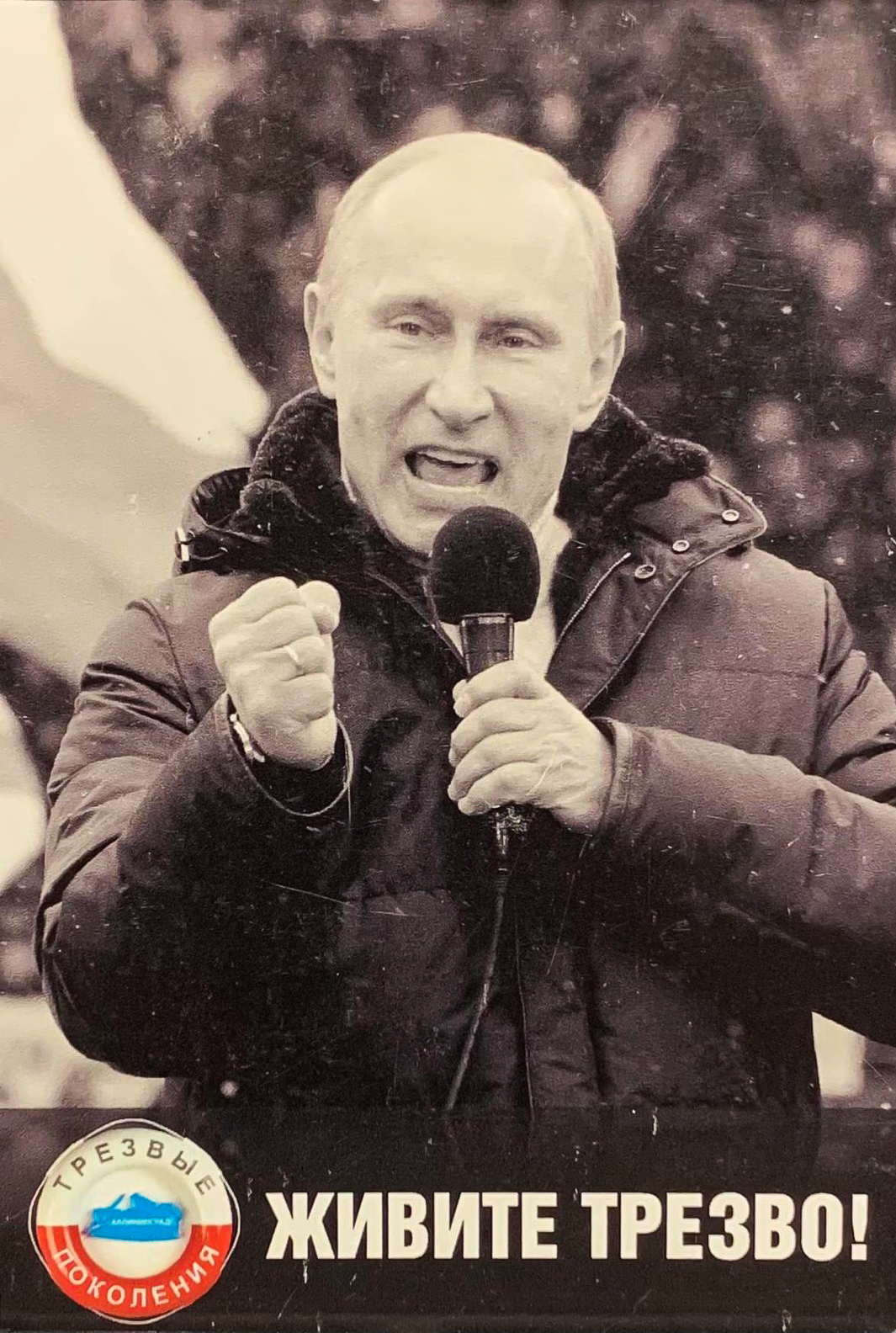
Rotenberg’s crediting of judo rather than Putin for his wealth seems even more questionable following a bombshell 2023 report by the independent Russian journalist collective Proekt","_id":"00000187-e973-d38e-ab9f-e97744dc0000","_type":"02ec1f82-5e56-3b8c-af6e-6fc7c8772266"}">known as Proekt. The exposé made headlines for uncovering the lavish properties, lifestyle and extensive entourage of Russia’s unofficial “tsarina” — retired gymnast Alina Kabaeva — long rumored to be the mother of at least three children by the now-divorced Putin.
More importantly, the Proekt report documents how these extravagant homes were paid for by a shadowy shell company in Cyprus known as Ermira Consultants. What — or who — is Ermira has been a source of significant speculation. Long rumored to be Rotenberg’s offshore slush fund, Proekt cited an inside source to report that “the real owner of Ermira is President Putin.”
Through Ermira, Proekt reported, Putin and Rotenberg have personally made hundreds of millions of dollars from their control over the Russian vodka industry.

‘You have no idea how much money this is’
Putin’s affiliation with vodka is not just financial. In 2003, a new brand rolled off the assembly line at the Kristall distillery: “Putinka.” Just as vodka is the Russian diminutive “little water,” Putinka is Russia’s “little Putin” in a bottle. Inspired by the cut-rate vodka that flooded the Soviet Union in the early 1980s, affectionately dubbed “Andropovka" after the geriatric Secretary General Yury Andropov, the name “Putinka” was just different enough from Putin’s surname to avoid legal infringement on his name and likeness. Nevertheless, when entrepreneurs approached Rotenberg (and thereby Putin) for their blessing, Rotenberg thought it such a good idea that he reportedly bought-out the proposed brand name and trademark. “Putinka” would henceforth be the most important label to adorn the vodka bottles rattling off the Kristall assembly line.
“From the very beginning,” Proekt notes","_id":"00000187-e97c-d883-a797-ff7c4a6b0000","_type":"02ec1f82-5e56-3b8c-af6e-6fc7c8772266"}">as Proekt notes, Putin and Rotenberg “controlled all earnings from Putinka, from the trademark rights to the production and trade of the ‘president’s vodka’,” even as rumors about the true owners of Putinka swirled through Moscow.
“You have no idea how much money this is,” one insider explained to Proekt: “Distributors who wanted to sell Putinka would bring Rotenberg bags full of cash — as payment for permission to sell vodka named after the president. Some of that money was always intended for Putin.”
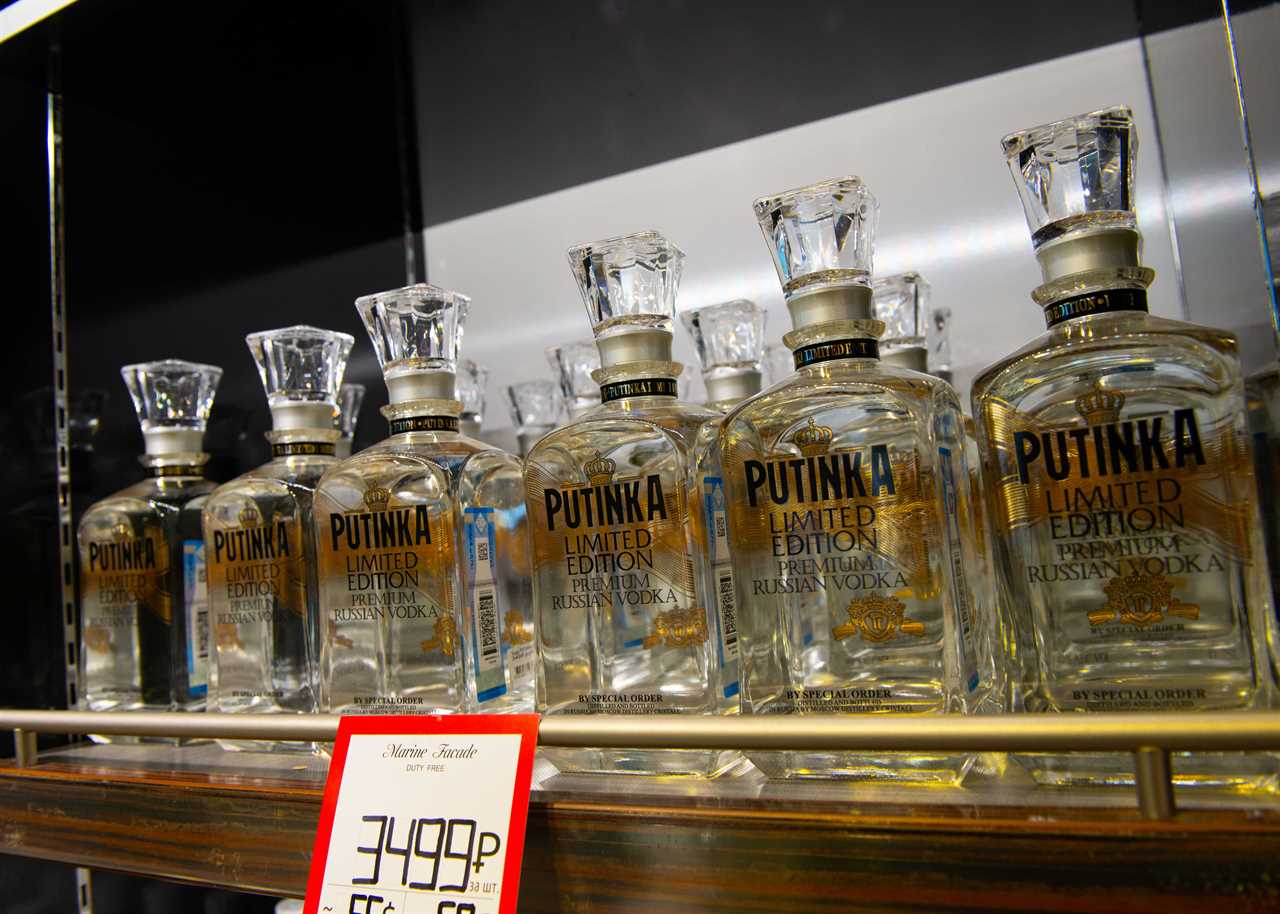
In the early years of Rosspirtprom, business was booming. Since vodka is largely an undifferentiated commodity — just pure grain alcohol and water — there’s little brand loyalty in Russia between this industrial distillate and that industrial distillate.
Capitalizing on Putin’s early popularity, Putinka was even dubbed Russia’s Superbrand of 2004. With Kristall churning out more than eight million bottles monthly, Putinka quickly became Russia’s second most popular vodka brand, grossing some $500 million annually. The downside to such skyrocketing sales was that Russian alcohol consumption — and the alcohol-related mortality, crime and poverty figures that accompanied it — remained alarmingly high, even as the economy continued its steady improvements.
Putin’s next attempt to further strengthen Rosspirtprom’s stranglehold on the Russian vodka market, however, would backfire spectacularly, dealing his own national champion a devastating blow.
Bowing to pressures to do something about Russia’s astronomical alcoholism, in 2005, Putin signed a new law intended to reduce the “rampant corruption, illegal activity and extremely high rates of alcohol poisonings” from illicit vodka. The law mandated new government excise stamps, expensive production-monitoring equipment and the revocation of licenses of producers who were in arrears in their tax payments to the treasury. On paper, it looked like a win-win: Be seen to be doing something about poisonings from illegal alcohol, while pushing smaller producers and illicit distillers out of the market.
Instead, the implementation of the new regulations — beginning on Jan. 1, 2006 — became an utter fiasco. The new excise stamps were not printed in time, leaving producers, including Rosspirtprom, with millions of bottles of vodka they couldn’t legally sell. Rather than produce more vodka that they couldn’t sell and had no room to store, production halted. Assembly lines idled for months. As liquor store shelves lay empty, hard-up Russian drinkers turned to quaffing poisonous homebrews, industrial solvents and even antifreeze. The summer of 2006 saw a nationwide epidemic of fatal alcohol poisonings, with four regions imposing an official state of emergency for bad vodka.
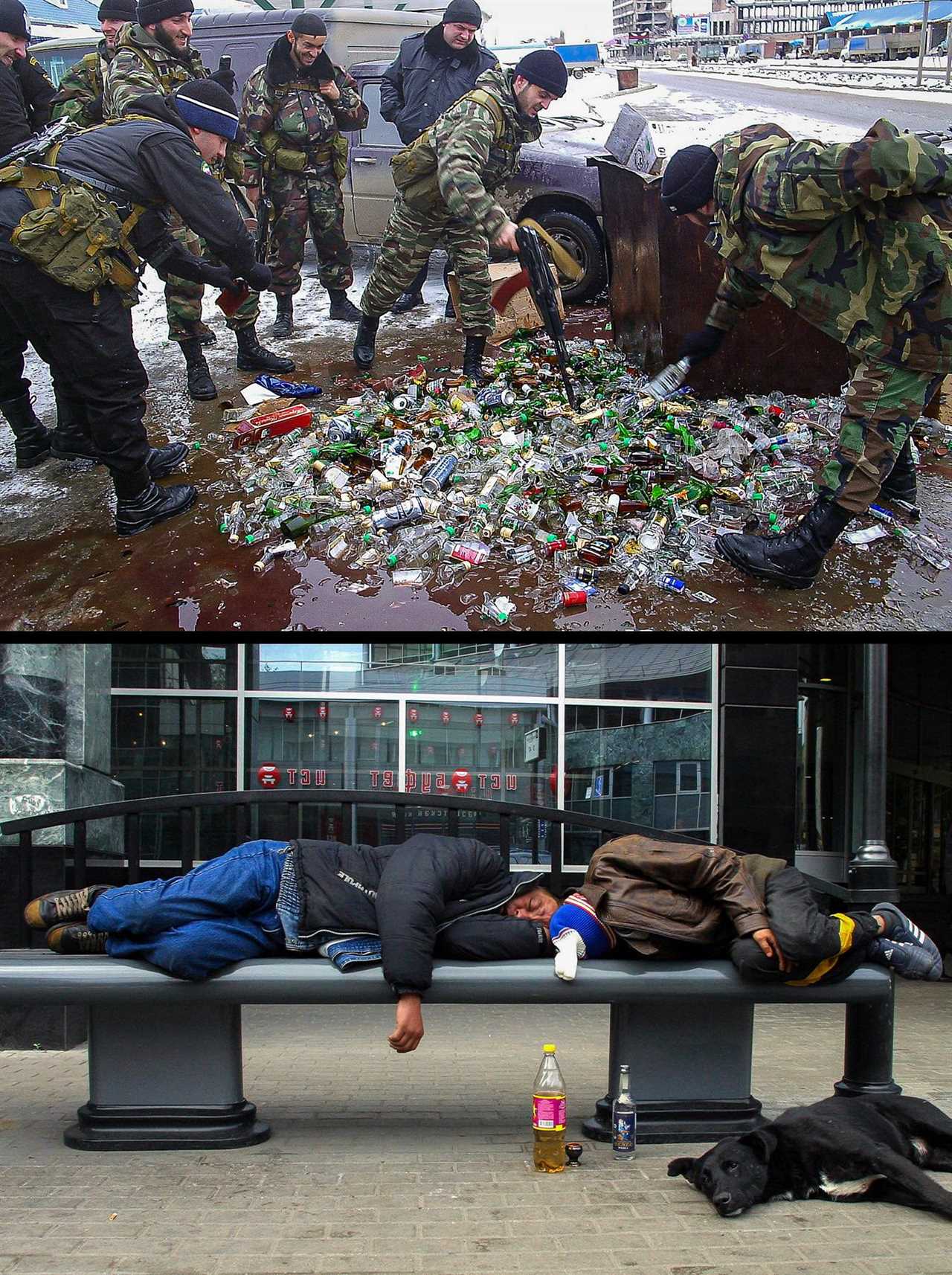
Even worse, much like other national champion companies charged with putting politics ahead of profit, an investigation by Russian financial authorities revealed that Rosspirtprom often sold to distributors on credit to get as many bottles on the shelves as possible. But when those same indebted distributors suddenly had to pay for their wares up front, many couldn’t, leaving the badly overextended Rosspirtprom holding the bag. Without enough cash on hand to pay its taxes to the state, the Federal Tax Service suspended Rosspirtprom’s license in accordance with the law, pushing Putin’s national-champion company to the verge of total bankruptcy.
Now, as much as the initial success of Rosspirtprom is an object lesson in authoritarian crony capitalism, so too is its sudden failure. Rather than admit the loss borne of bad policymaking, the entire system pays the price — however reluctantly — lest the “wisdom” and desires of the autocrat be second-guessed. We see this same pattern now with Putin’s disastrous war in Ukraine, where since it became clear that the initial objectives of seizing Kyiv and toppling the Ukrainian government could not be achieved, rather than cutting one’s losses and going home, the entire system is marshaled to defend the autocrat’s bad idea regardless of the costs.
Since Putin’s pet projects cannot be allowed to fail, Rosspirtprom had to be bailed out. An emergency 5 billion ruble ($165 million) loan was orchestrated by state-run VneshTorgBank, or VTB, whose board of directors is populated with Rosspirtprom officials, and led by Putin’s finance minister, Kudrin.
“VTB is a very good reflection of how business in Russia occurs today,” a banking insider told the Moscow Times: “On one hand state ownership and on the other direction by individuals who are much more concerned about their own wealth than about the benefit to the country or the owners of the institution.” No wonder VTB’s shenanigans were an easy target for a young anti-corruption crusader Alexei Navalny as far back as the early 2010s.
The VTB bailout allowed Rosspirtprom to pay its tax bill and restart production — but the dwindling profit margins on bargain-basement vodka meant it was unable to pay off its debts, interest, bills or wages. Even after selling off assets including the Putinka trademark and other popular brands, Putin’s hollowed-out national-champion company could no longer make money selling vodka to Russians.
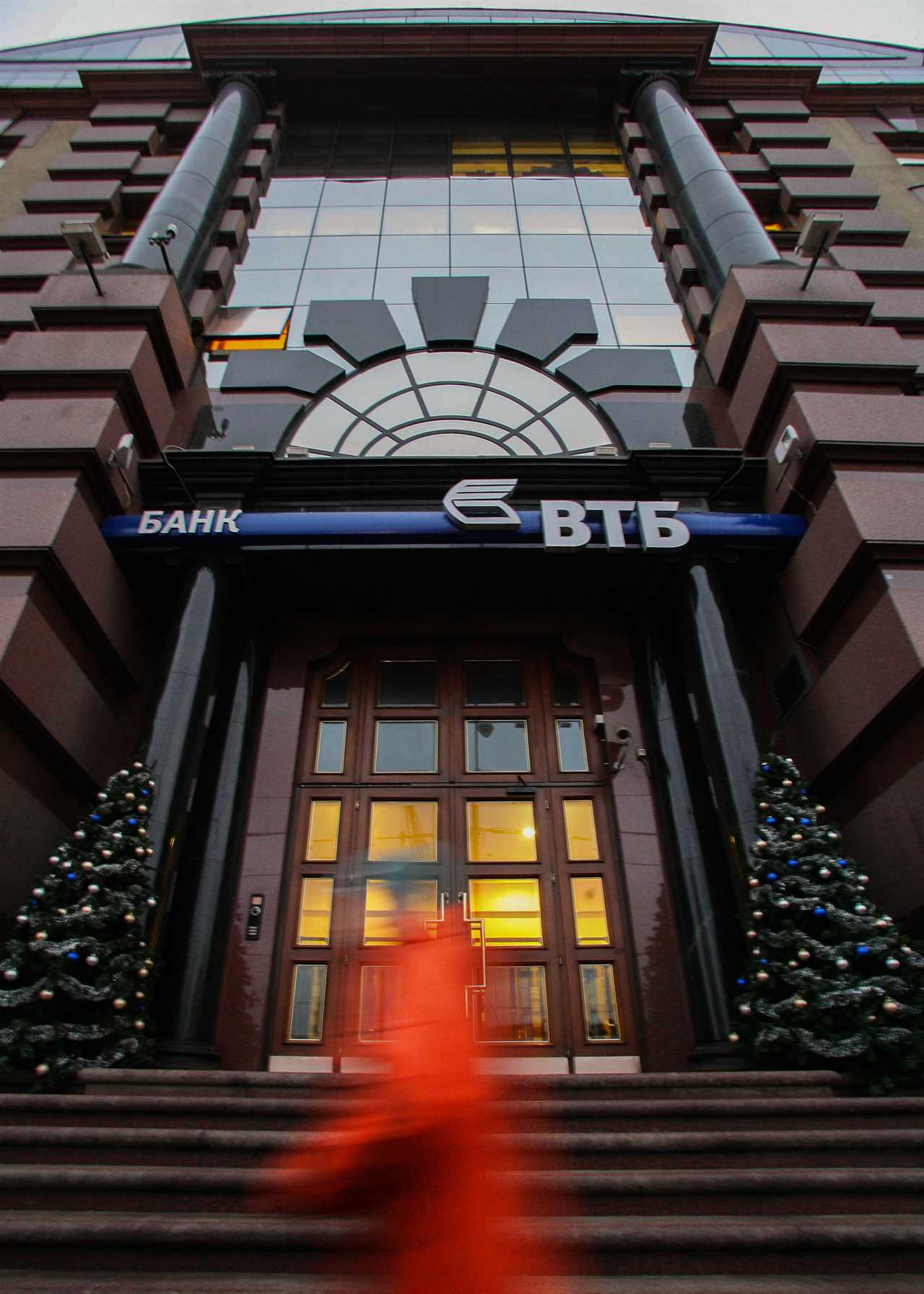
In 2009, VTB foreclosed on the rump company, selling the remaining assets — including Kristall — to another Kremlin-connected oligarch, Vasily Anisimov, for 5 billion rubles: The amount of the original VTB bailout. Having made his money in aluminum, nonferrous metals and banking, Anisimov expanded into high-end real estate speculation in Manhattan, before being reluctantly lassoed into the vodka business. As if to seal their bond, Anisimov joined Putin’s so-called “judo gang” upon being appointed president of the Russian Judo Federation, despite never participating or expressing an interest in judo.
Upping his stake in Kristall from 51 percent to 86 percent with a loan financed by Rotenberg’s SMP Bank, Anisimov became the biggest player in the Russian vodka market alongside Rotenberg, even though he never seemed particularly happy about it. When questioned about his vodka assets in a 2011 Kommersant’ ","link":{"target":"NEW","attributes":[],"url":"http://www.kommersant.ru/doc/1650972","_id":"00000187-eb5b-db3c-a1c7-efdb77750016","_type":"33ac701a-72c1-316a-a3a5-13918cf384df"},"_id":"00000187-eb5b-db3c-a1c7-efdb77750017","_type":"02ec1f82-5e56-3b8c-af6e-6fc7c8772266"}">Kommersant’ interview, he explained: “We only took them in order to make money,” dismissing vodka as a “troublesome product.” With a developer’s eye, Anisimov moved much of the distilling operation to the outskirts of Moscow, and has announced plans to raze the iconic Kristall factory — which sits on 8.6 hectares of choice real estate in the city center — in order to build condominiums.
Even as Putinka has become a fixture of the low-end vodka market, its actual ownership has shuffled hands multiple times, without ever leaving Putin’s orbit. In 2014, the rights to Putinka were transferred from Rotenberg’s control to Real-Invest, which is a direct subsidiary of Putin’s own Ermina Consultants in Cyprus. The following year, distribution of Putinka was transferred from the East European Distribution Company — owned by Anisimov — to the so-called “Status Group,” which is also owned by Anisimov. By 2020, Putinka was shuttled back to Rotenberg’s control by way of his Baikal-Invest subsidiary.
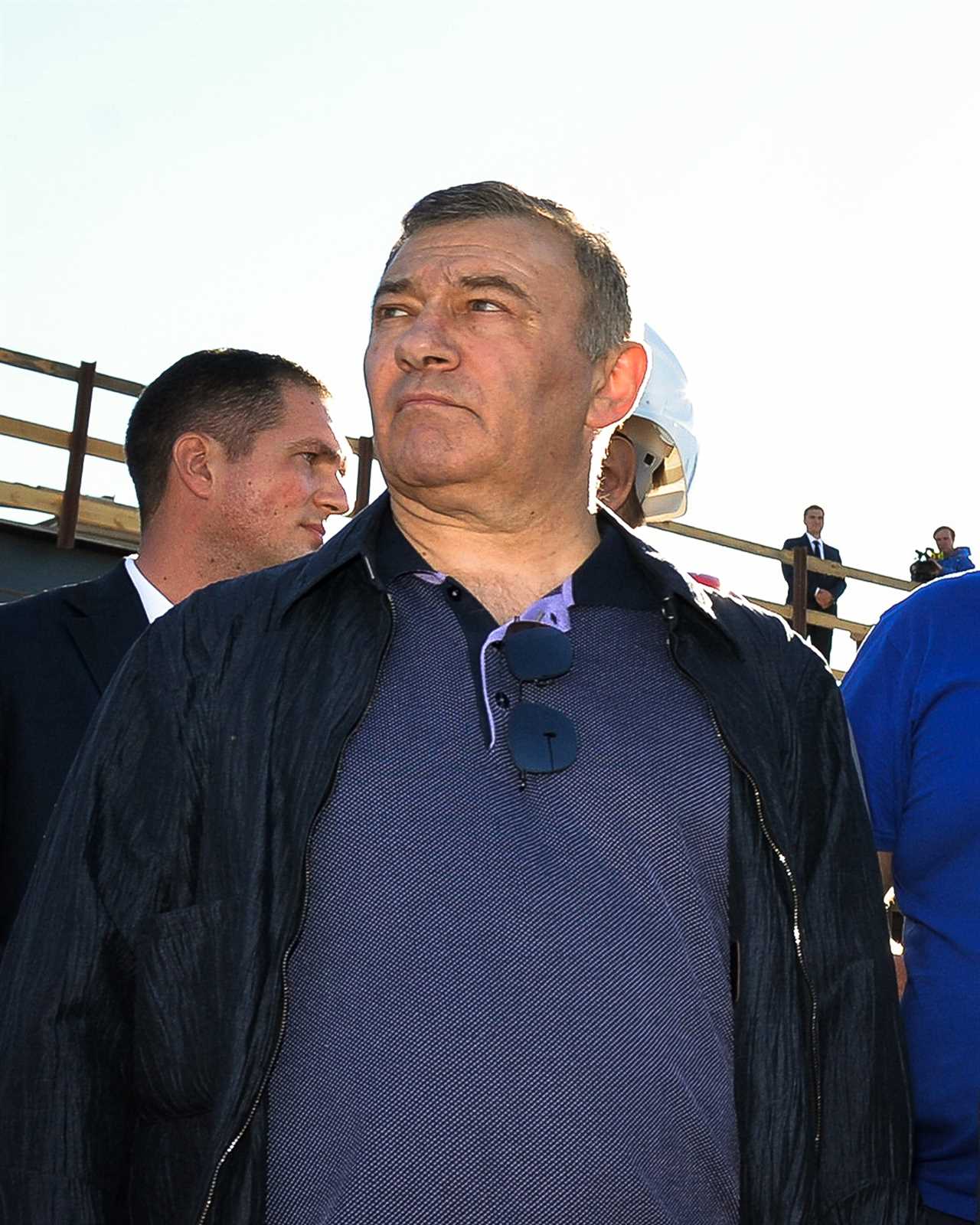
The exact scale of Vladimir Putin’s personal wealth has long been a topic of intense speculation. Having grappled with the topic for decades, Forbes claims","_id":"00000187-e992-d883-a797-ffd6a0000000","_type":"02ec1f82-5e56-3b8c-af6e-6fc7c8772266"}">Forbes claims “figuring out Putin’s net worth is probably the most elusive riddle in wealth hunting.” Occasionally, though, independent investigations like the Panama Papers or Navalny's anti-corruption investigations shine a light into one aspect or another, only hinting at the true scale.
This year’s Proekt investigation adds an important new piece to this puzzle. Even if it isn’t the largest source of Putin’s wealth, the half billion dollars in personal profits Proekt attributes to his vodka empire is no small amount, even for the Russian leader.

‘The alcohol situation in the country is catastrophic’
To what degree has Putin’s profit interest in vodka impacted Russian government policy? One might reasonably assume that a leader’s desire for private profit would conflict with his official duty to promote Russia’s public welfare.
Without a direct line to Putin’s brain, it is difficult to say with absolute certainty. The Kremlin has been notably silent on questions of alcohol-control policy and the vodka market. But a personal profit-seeking motive would explain an entire series of questionable public policies that worked to the detriment of Russian health and well-being.
As noted previously, when Putin inherited the presidency from Yeltsin, he was also bequeathed an unprecedented health and demographic nightmare. Following the collapse of communism, Russian mortality skyrocketed alongside “mind-boggling” consumption of vodka. A Lancet study found that, during the calamitous 1990s, alcohol was the single greatest factor in Russia’s mortality crisis, claiming over 425,000 lives annually. Over 50 percent of all deaths of working-age Russians (ages 15-54) were “chiefly due to the use of vodka and other strong alcoholic drink.”
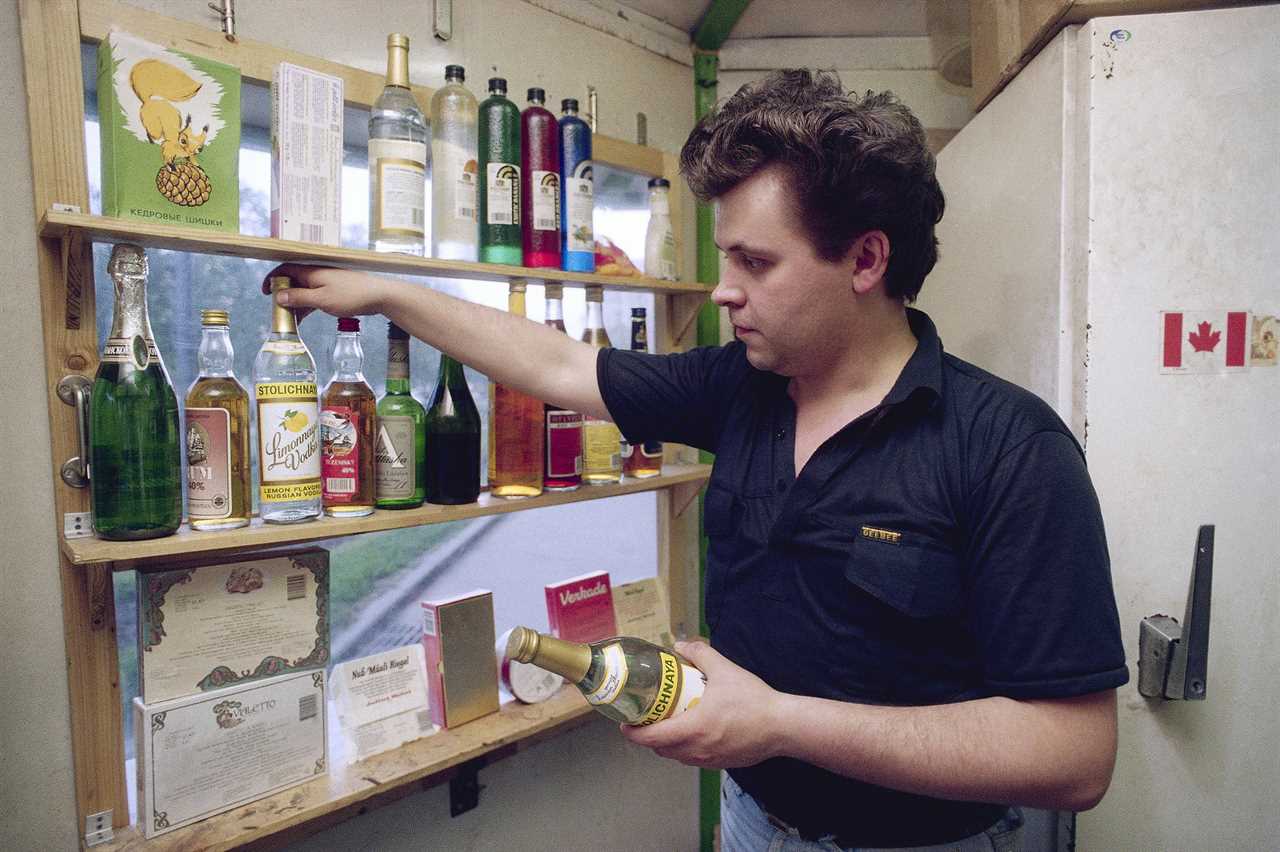
Putin’s first two terms in office saw dramatic improvements in the economy: Russian GDP in 2008 was triple that of when he assumed the presidency in 2000, yet public-health statistics did not keep pace with the number of Russians dying just from alcohol poisoning still 50 times higher than in the West.
Russian public-health officials urged the adoption of even the most rudimentary alcohol-control policies: Raise the drinking age, limit the hours of alcohol sales, increase penalties for selling alcohol to minors, clamp down on drunken driving. Anything.
Still, “not one of these measures was acted upon,” according to Dr. Aleksandr Nemtsov, Russia’s foremost expert on alcoholism. In fact, when the State Council presented the president with a draft Concept of State Alcohol Policy, Putin reportedly laughed it off, saying “What? Do you want me to become another Ligachev?,” referring to the teetotalling Politburo member faulted for Gorbachev’s infamous anti-alcohol fiasco. The only reforms he would enact were those licensing restrictions of 2006, intended to strengthen Putin’s national-champion Rosspirtprom, which backfired spectacularly, with thousands of alcohol poisonings as collateral damage.
“You don’t have to read the newspapers, listen to the radio, watch TV, or know anything about high-level intrigues to deduce that the powers-that-be long ago ceased to care about the well-being of the people,” Nemtsov concluded in his book-length study on modern Russian alcohol policy. “We are forced to confront the reality that the alcohol situation in the country is catastrophic, and the government has done almost nothing about it.”
That changed markedly at the end of Putin’s second term in 2008, when he stepped away from the presidency for four years. Facing a constitutional limit of two terms, Putin nominated his trusted sidekick and long-serving prime minister, Dmitry Medvedev, for Russia’s top post. For the next four years, Putin was prime minister instead. Historians and pundits largely dismiss this interregnum as Medvedev simply keeping the throne warm for Putin’s planned return to the presidency in 2012, however there were some significant differences between the two leaders, notably in the struggle over alcohol.
Especially since Russia’s ill-fated 2022 invasion of Ukraine, Dmitry Medvedev has become a brooding, bellicose, and almost comically villainous cheerleader for the destruction of Ukraine and the West. So it may be hard to imagine that just a decade ago, this young, tech-savvy, Deep Purple fanboy was considered a friendlier, more liberal alternative to Putin, with whom the West could "reset” relations with Russia following the 2008 invasion of Georgia.
Furthering that reformer image, once comfortably in the presidency, Medvedev actively sided with public-health experts on the necessity of confronting Russia's vodka crisis. The scope of Russia’s alcoholization “is simply mind-boggling,” Medvedev proclaimed in justifying a new anti-drunkenness initiative. He noted Russian per-capita consumption rates equated to “approximated 50 bottles of vodka, for each resident of the country, including infants. These are monstrous figures.” Of course, his boss’s Putinka brand was foremost among them.
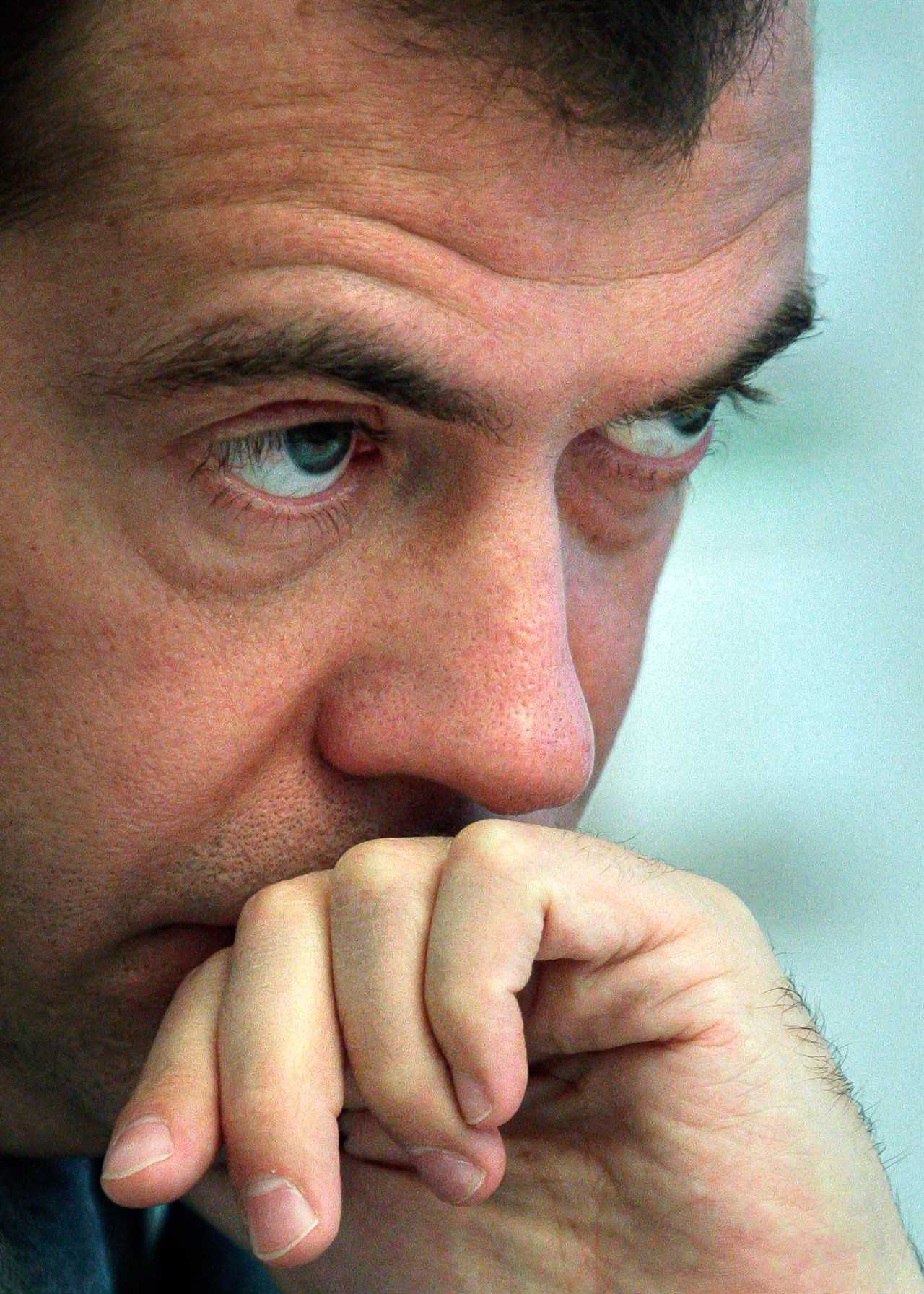
Did Putin never tell Medvedev about his shadow vodka business? Given their lockstep coordination in virtually all other areas of policy, it seems unlikely Medvedev knew his well-meaning policies were kneecapping his boss’s own enterprise. More likely Medvedev was kept in the dark about Putin’s “business people,” just as government ministers Illarionov, Gref and Kudrin were.
Indeed, Medvedev continued to side with both the Russian and international public health community, even blasting Putin’s suspicious reluctance to do anything about the crisis in his first eight years as president. “I believe no changes have taken place, really,” Medvedev admitted. “Nothing has helped.”
Beginning in 2009, Medvedev enacted an entire raft of common-sense alcohol restrictions patterned on international best practices: A modern public relations campaign, banning TV ads for alcohol, increasing both the drinking age and penalties for selling to minors, mandating health warnings, restricting the hours of alcohol sales, reducing the number of retail outlets and imposing a zero-tolerance law against drunken driving. Unlike the draconian restrictions of autocracies past, these restrictions would be introduced gradually, especially the incremental ratcheting-up of the minimum price of a standard half-liter bottle of vodka from 89 rubles (about $3) to 199 rubles (about $6) by 2014, discouraging consumption by slowly making vodka more expensive. The consumers of expensive, top-shelf vodkas like Russkii Standart wouldn’t be impacted by gradual increases in the price floor. It was the cheap, bottom-shelf vodkas — like Putinka — that were in Medvedev’s crosshairs.
International market watchers estimated that legal vodka production dropped by a third thanks to Medvedev’s anti-alcohol campaign. Putinka was hit especially hard: Its production collapsed by over 50 percent by 2011.
“It is not about losing profits,” Putinka’s managers nevertheless admitted, when asked why they continued the struggling brand’s production. “Vodka under such a brand name could never be allowed to simply die, as would happen with any other brand. This is a question of politics.”
Putin himself was notably mum on Medvedev’s anti-alcohol reforms, which — as Russia’s prime minister — he was duty bound to implement. But apparently, Putin simply had other loyal Kremlin officials work to undermine Medvedev’s anti-vodka policies, which would ensure his personal revenue stream.
Outwardly, this took the form of a sudden and head-scratching redirection of the anti-alcohol legislation to target not vodka, but beer. The most unassailable tenet of global alcohol research is that highly potent distilled liquors like vodka are far and away more deadly and damaging to individual health and societal well-being than lighter fermented beers and wines. Indeed, recent public policies from Scandinavia, the Baltics and Poland to the Netherlands and the United Kingdom have incentivized a switch away from hard liquor toward “healthier” fermented beverages, leading to decreased mortality and better health outcomes.
So the announcement that the subtle increases in vodka duties would be paired with a dramatic, 200 percent increase in beer taxes — encouraging consumers to drink less beer and more vodka — made absolutely no logical sense unless someone powerful stood to gain from it. Putin stayed on the sidelines, letting his Minister of Health and Social Development Tatyana Golikova lead the initiative that perversely undermined Russian health and social development.
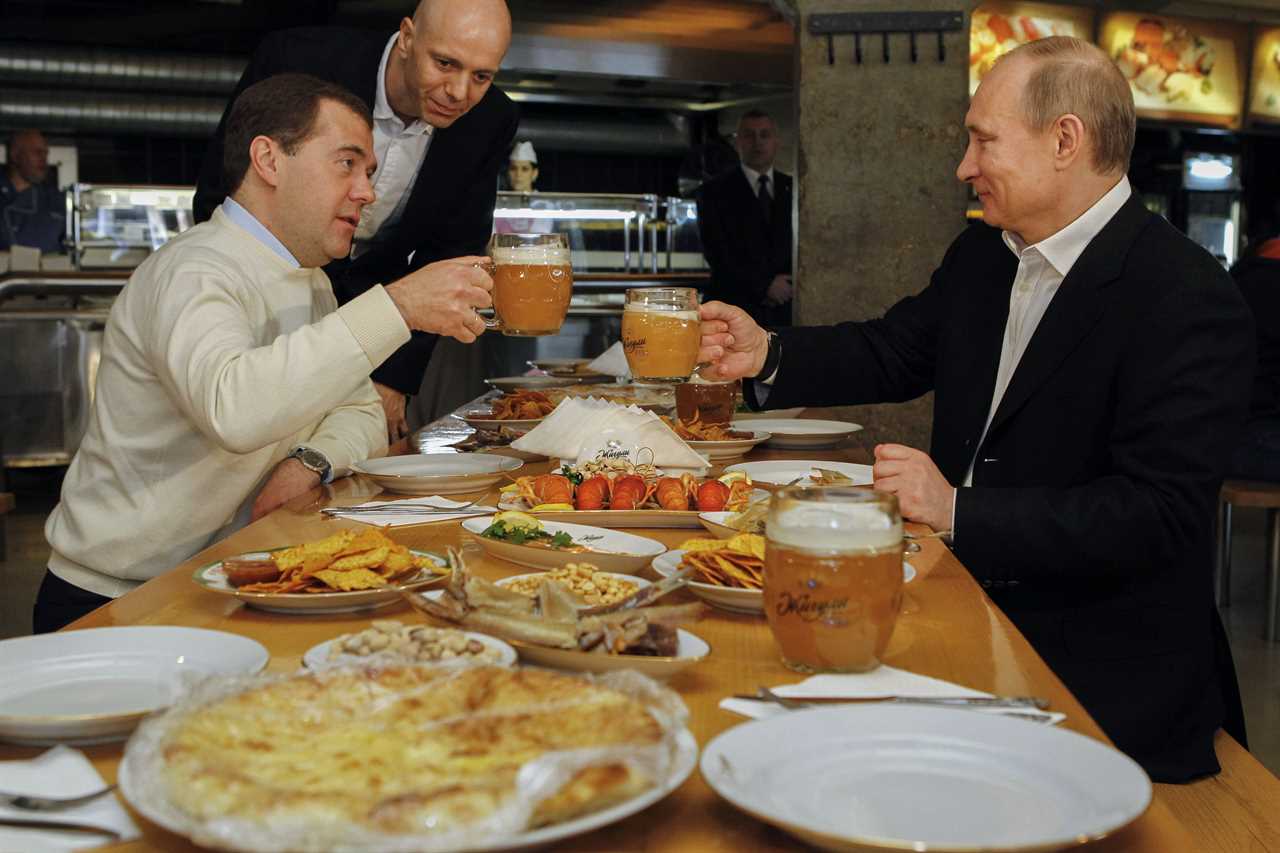
The parliamentarian behind the pro-vodka, anti-beer legislation was Viktor Zvagelsky, of Putin’s ruling United Russia party, who bucked all scientific and medical consensus with his repeated insistence that “beer alcoholism is, in some cases, more dangerous than distilled spirits.” Zvagelsky, perhaps unsurprisingly, was a former deputy CEO of Rosspirtprom.
Investigations by British researcher Anna Bailey probed this bizarre decision. Interviews with market insiders affirmed that derailing the anti-vodka campaign in order to target beer “was decided at the very highest echelon” in the Kremlin. “At the level of the prime minister [Putin], there was, let’s say, a nod given to go more easy on the indexation of strong alcohol.”
What’s more, in protest against the unexpected move against beer, Bailey notes that “President Medvedev subsequently issued an order to Prime Minister Putin” to monitor and report back changes in alcohol-consumption patterns with an eye to redirecting reforms back toward vodka.
Those presidential orders from Medvedev were ultimately ignored by Putin.
Yet perhaps the most brazen hypocrisy in undermining well-meaning reforms and encouraging drunkenness for Putin’s profit came from his longtime finance minister, Alexei Kudrin, whose VTB bank was so instrumental in the Rosspirtprom bailout. Speaking to the Interfax news agency","_id":"00000187-e9b1-deac-a397-edfdcdad0000","_type":"02ec1f82-5e56-3b8c-af6e-6fc7c8772266"}">Interfax news agency in 2010, Kudrin said the quiet part out loud, encouraging patriotic Russians to smoke and drink more because “he who drinks vodka and smokes cigarettes contributes more revenue to the state.”

‘We don’t abandon our own’
After returning to the presidency in 2012, Putin snuffed out what was left of Medvedev’s public-health initiatives. Restrictions on vodka were quietly abandoned, and the incremental price hikes were scrapped. By 2014, Putin began actually lowering the minimum price of vodka, which bolstered struggling budget brands. Predictably, Putinka’s market share rebounded, as did Putin’s profits.
In subsequent years, Putinka vodka has become synonymous with the Putinist autocracy, even acting as a cheerleader for the worst excesses of his regime. In May of 2022, three months after the beginning of Putin’s disastrous and bloody invasion of Ukraine, the bottles of Putinka that rolled off the Kristall assembly line were emblazoned with new, patriotic, pro-war labels featuring Russian tri-color flags and the Latin letters “Z” and “V,” like those adorning the Russian tanks and APVs trundling across the border into Ukraine.
The black “Z”-label Putinka reads “svoikh ne brosayem","link":{"target":"NEW","attributes":[],"url":"https://rsovin.ru/product/putinka-klassicheskaya-vodka-40-24-0-25l-moskovskij-z-d-kristall-oao/","_id":"00000187-eb5b-db3c-a1c7-efdb77790002","_type":"33ac701a-72c1-316a-a3a5-13918cf384df"},"_id":"00000187-eb5b-db3c-a1c7-efdb77790003","_type":"02ec1f82-5e56-3b8c-af6e-6fc7c8772266"}">svoikh ne brosayem,” or “we don’t abandon our own,” in reference to the pro-Russian breakaway states in Donetsk and Luhansk. The white “V”-label reads “sila V pravde","link":{"target":"NEW","attributes":[],"url":"https://www.sibreal.org/a/proizvoditel-vodki-putinka-podal-zayavku-na-patent-etiketok-s-v-i-z/31860482.html","_id":"00000187-eb5b-db3c-a1c7-efdb77790004","_type":"33ac701a-72c1-316a-a3a5-13918cf384df"},"_id":"00000187-eb5b-db3c-a1c7-efdb77790005","_type":"02ec1f82-5e56-3b8c-af6e-6fc7c8772266"}">sila V pravde,” or “strength is in truth”— an Orwellian catchphrase Putin invoked in his de facto declaration of war.
Both variations unabashedly seek to maximize profit on the fervor for war. Those Russian patriots who are unwilling to sacrifice their lives for Putin’s ego in Bakhmut can at least sacrifice their money and livers for Putin’s penthouses in Sochi. Or, given the drunken disorder among Russia’s forced conscripts, they can do both.
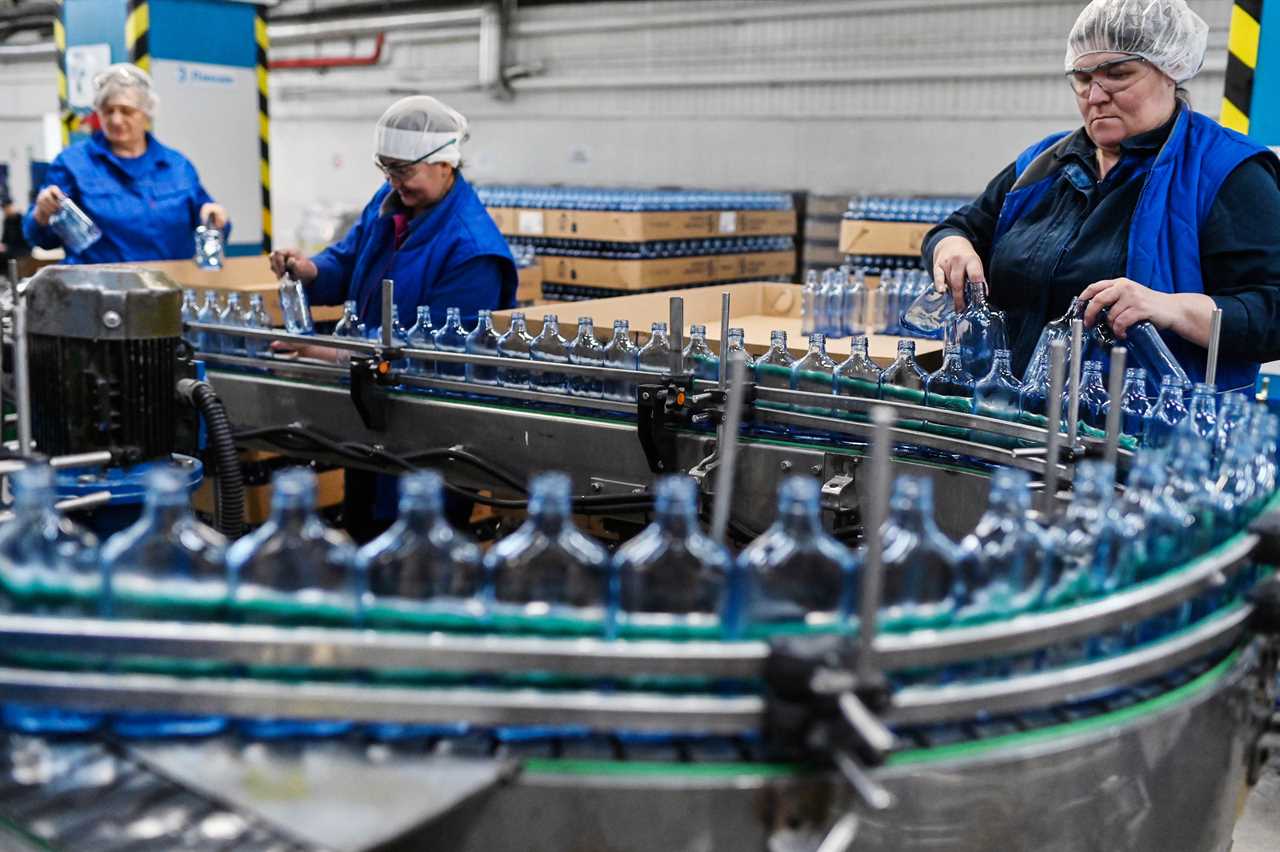
As the Kremlin’s war in Ukraine grinds disastrously onward, Putin has suddenly grown concerned about the “high level of alcoholization of the population.” According to reporting by independent journalists at Meduza, Putin is worried that Russian officials have started drinking significantly more since the war started, including "certain people from his inner circle." As with the war itself, Putin has only himself to blame for Russia’s vodka debacle.
In the end, the crowning irony of Putin’s reign in Russia — regardless of how it ultimately ends — is that Putin has become synonymous with the very thing he most abhors. From the beginning of his presidency, Putin framed himself as a fit, steady and stable leader, in marked contrast to the inebriate bumbling of his predecessor. Yeltsin may have been a drunk and Putin sober; true. But Yeltsin’s drunkenness was his own cross to bear, he never imposed his addiction on his fellow countrymen.
By contrast, Putin’s addiction is not to alcohol, but to his own greed, profit and hubris. The means to that end meant keeping Russian society shackled to the vodka bottle.
In so doing, Putin has perpetuated and reinforced the historical hallmark of generations of Russian imperial autocracy, that it is not the autocrat who serves the interests of the people, but Russia’s people who serve the interests of the autocrat.
----------------------------------------
By: Mark Lawrence Schrad
Title: Vladimir Putin’s Shadow Empire of Vodka
Sourced From: www.politico.com/news/magazine/2023/05/05/vladimir-putin-vodka-empire-00095109
Published Date: Fri, 05 May 2023 03:30:00 EST






